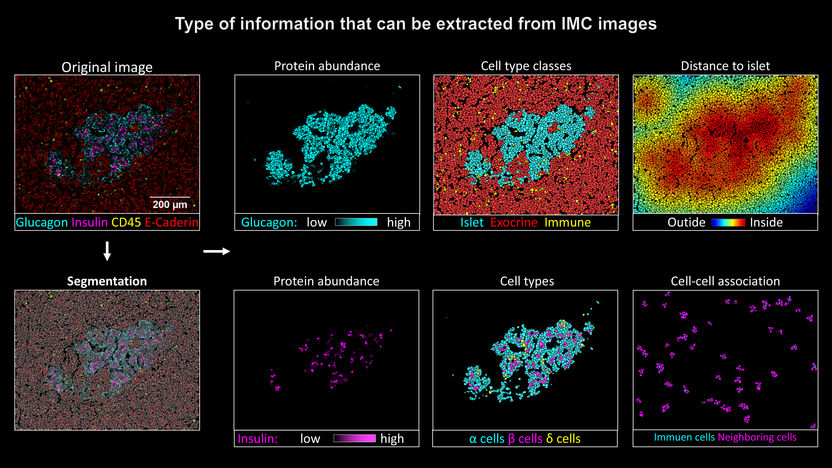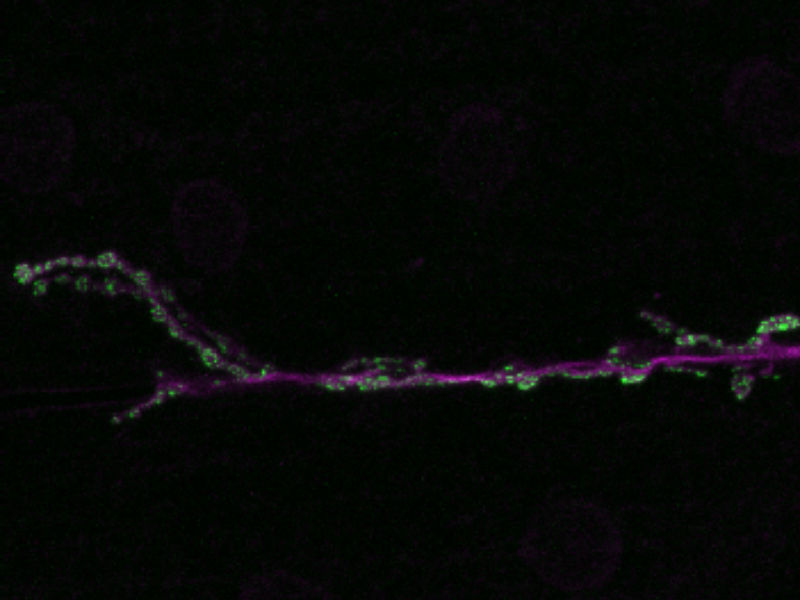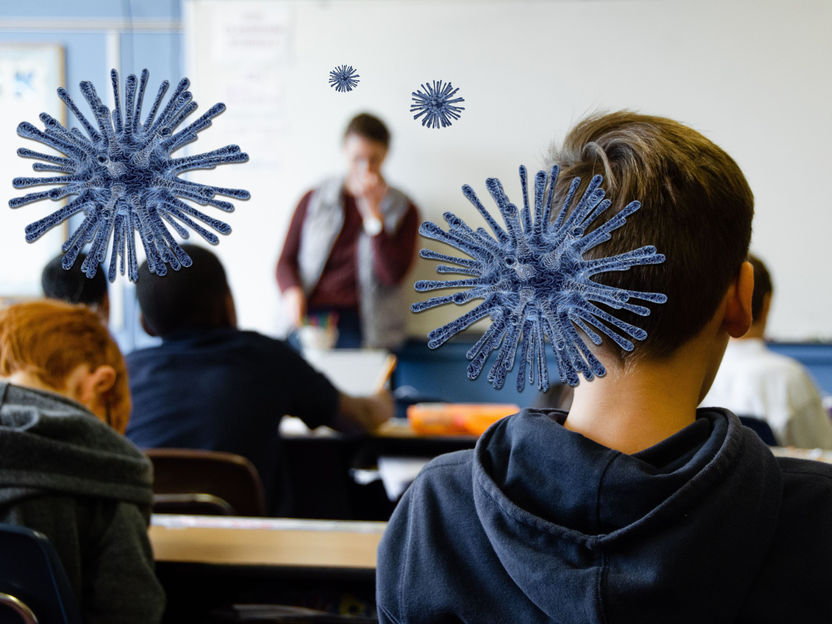Enhancement of pollen allergy reaction by non-allergenic compounds
The role of B cells
Scientists at Helmholtz Zentrum München and TU München discovered a new mechanism how non-allergenic pollen mediators can enhance allergic reactions. Especially the so-called B cells play a critical role in this process.
The team of Prof. Carsten Schmidt-Weber and Prof. Jan Gutermuth of the Center of Allergy & Environment (ZAUM) at Helmholtz Zentrum München and TU München investigated the influence of pollen extract of common ragweed, also known as Ambrosia artemisiifolia, on B cells. These cells can produce immunoglobulin E (IgE), the key trigger and an important diagnostic marker of allergic reactions. “We were able to show that pollen extract enhances the secretion of allergy driving IgE antibodies in vitro and in vivo”, explains Dr. Sebastian Öder who is leading author of the study together with Dr. Francesca Alessandrini. “Moreover, our colleagues at the Swiss Institute of Allergy and Asthma Research (SIAF) confirmed this effect also for human B cells.”
By excluding various substances, the scientists tested which components exactly caused the reaction. Therefore, B cells were either exposed to the main Ambrosia allergen Amb a 1, the pollen associated substance PPE1 or the total extract and a protein/allergen free fraction of the extract, respectively. “Interestingly, all substances increased the respective immune reaction of the B cells, except Amb a 1”, Öder says. Therefore, the authors conclude that the enhanced secretion of IgE is independent of the main allergen Amb a 1, but is rather induced by small compounds like PPE1.
Mechanism not only relevant for Ambrosia
„Until now it was assumed that the allergy promoting effect of non-allergenic plant compounds was mainly mediated by dendritic cells. The new mechanism that we found therefore allows a different view on this issue and furthermore offers new starting points for the development of therapies against allergic diseases”, says Schmidt-Weber, director of ZAUM.
To test the relevance of their results, the Helmholtz researchers also investigated the effect of other pollen extracts like from birch, pine and timothy grass. They showed that the effect plays a role not only for Ambrosia, but is also relevant for trees and grasses. “In the future we are planning to investigate the effect of climatic changes on the B cell mediated allergenicity of pollen, since climatic changes may impact the composition of pollen”, comments Prof. Claudia Traidl-Hoffmann. She is director of the Christine Kühne – Center for Allergy Research and Education (CK-CARE), which provided financial support for the study.
Original publication
Other news from the department science

Get the life science industry in your inbox
By submitting this form you agree that LUMITOS AG will send you the newsletter(s) selected above by email. Your data will not be passed on to third parties. Your data will be stored and processed in accordance with our data protection regulations. LUMITOS may contact you by email for the purpose of advertising or market and opinion surveys. You can revoke your consent at any time without giving reasons to LUMITOS AG, Ernst-Augustin-Str. 2, 12489 Berlin, Germany or by e-mail at revoke@lumitos.com with effect for the future. In addition, each email contains a link to unsubscribe from the corresponding newsletter.
Most read news
More news from our other portals
Last viewed contents
Atheris_nitschei
Biochemistry
Adenorhinos

How Type 1 Diabetes Gradually Destroys Insulin Production
Bitis_cornuta
Carl_Freiherr_von_Rokitansky
Actelion announces change in its management structure - Otto Schwarz appointed Chief Operating Officer
EPO for the Brain - Engineered Moss produces human hormone without doping activity
ProtAffin AG granted patent in EU for CellJammer discovery technology - Novel technology enables development of a new class of biopharmaceuticals

CSIC researchers find the role of a protein in the regulation of synapse formation - The work raises the need for a balance between the Pinkman protein and the sHSPs proteins during the development of the nervous system for its correct formation
Affymetrix Selected to Genotype More Than 9,000 Framingham Heart Study Samples - SHARE Project to Help Identify Genetic Variants Associated With Heart, Lung, Blood and Sleep Disorders


















































